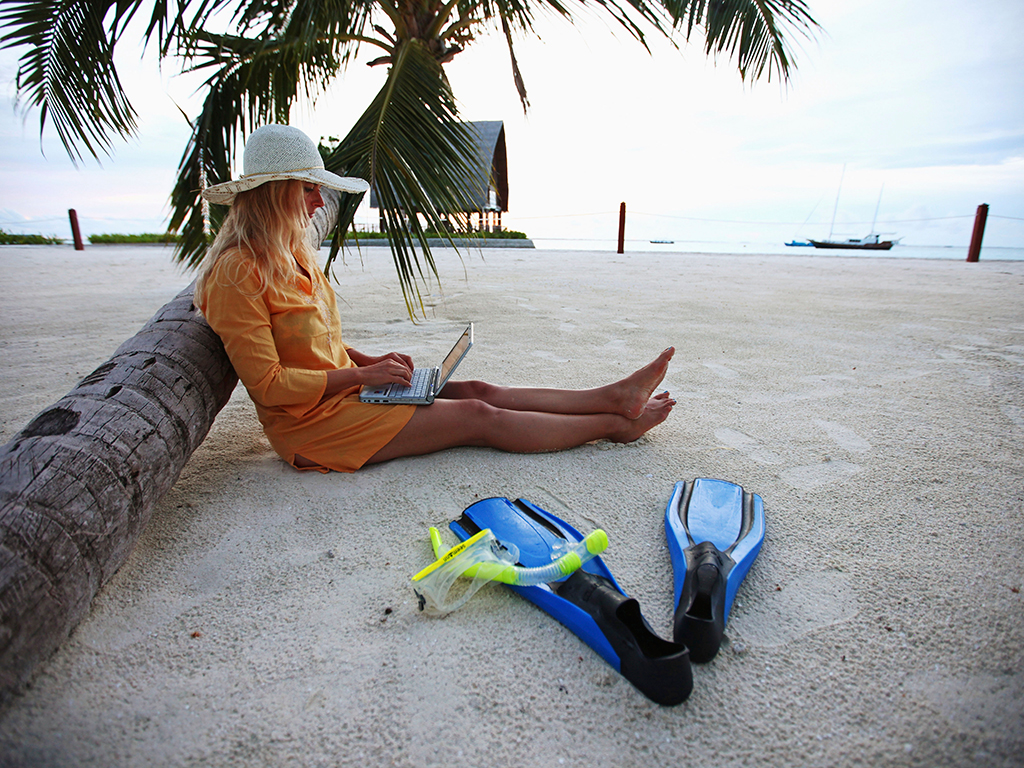Thanks to the technological revolution of smart phones and data roaming, we are finding it increasingly difficult to ‘switch off’ from work, even while on holiday. Mounting pressure from demanding careers has resulted in many working longer hours, on weekends and during annual leave. With better connectivity and emails just a button away, we are compelled to keep on top of it all, even when thousands of miles away. According to Expedia’s Vacation Deprivation 2014 report, 25 percent of holidaymakers surveyed around the world said that they check their work emails at least once a day while vacationing.
There are a number of reasons behind this compulsion to work while on holiday. “Organisations expect more and more from employees. During challenging economic times, staff who have left companies aren’t always replaced, and those who are left are increasingly expected to pick up the slack,” Caroline Smith at Mind Tools explains to Business Destinations. Sometimes it’s out of the fear of returning to a backlog of emails. Others feel obligated to prove their commitment, or follow suit of colleagues who set the unremitting bar.
Not fully recuperating on a periodic basis can promote stress and waning productivity
Not fully recuperating on a periodic basis can promote stress and waning productivity, which consequently is bad for business. “Not taking a break can ultimately lead to burnout, which is no good for anyone. It can mean having little interest in your work, taking time off sick, being snappy with other team members or clients, and wanting to leave your job,” says Smith. Working while we are meant to be unwinding can also induce resentment towards the workplace, no matter how good intentions may be.
As individuals in high-stress jobs struggle with that nagging need to check emails when on holiday, some find that the best way to counteract this impulsion is to go where the internet cannot find you. “We find a high proportion of our customers are business owners or certainly hard workers within their profession,” says Amy Neilson, Marketing Manager at Sailing Holidays. “The Greek Islands really are an unbeatable way to get away from it all. We find people’s priorities change considerably for the better”. Rated as the UK’s fastest growing holiday trade by IBIS World, cruises too are becoming increasingly popular. With rare bouts of reception to keep thoughts of office calls and emails at bay, a trip out to sea seems like a sure way to get away from it all.
More companies are beginning to realise the importance of ‘switching off’ in order to improve employee productivity. Germany seems to be leading the trend, with the Labour Ministry urging employers to establish rules over the use of work mobile phones. To the appreciation of its workforce, car manufacturer Daimler has introduced an optional auto-delete policy for emails while staff is on holiday. While workers at Volkswagen have emails blocked from 30 minutes after work-hours end until 30 minutes before the new shift begins, thus ensuring respite in the evenings.
As important as is it is to stay abreast of relevant work affairs and of showcasing dedication, working while on holiday is not beneficial in the medium to long term. Returning after a restful vacation brings revitalised energy levels and fresh focus to the workplace. It is increasingly recognised that maintaining a good work-life balance promotes wellbeing. This in turn enhances enduring performance levels, efficiency and creativity, thereby maximising your potential and that of your greatest asset. Therefore; it is advisable to switch off every now and again, so that you can fully ‘switch off’.





